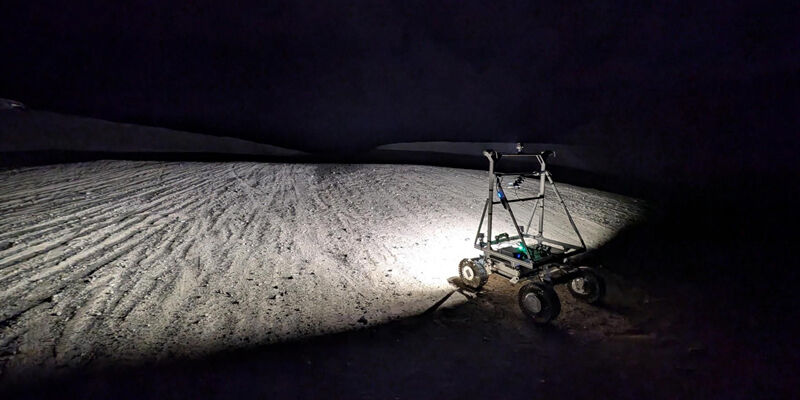NASA Spending Shift to Benefit Centers Focused on Science & Technology
Washington DC, June 7, 2011 â Euroconsult, the leading international consulting and analyst firm specializing in the space sector, along with the consulting firm Omnis, today announced the findings of a study today foreseeing a significant shift in NASA spending toward Earth science and R&D programs and away from legacy spaceflight activities.According to the report âNASA Spending Outlook: Trends to 2016,â NASAâs budget, which will remain flat at around $18.7 billion for the next five years, will also be characterized by significant shifts from space operations to technology development and science. With the shift in budget authority, NASA Centers focused on Earth observation, space technology, and aeronautics will see increases in funding, while those involved in human spaceflight will see major funding reductions. Indeed, the termination of the Space Shuttle program will lead to a budget cut over $1 billion for Space Operations, resulting in a 21% budget cut for the Johnson Space Center. Overall, the agencyâs budget for R&D will account for about 50% of all NASA spending. âBudget allocation across Centers will vary greatly,â said Steve Bochinger, President of Euroconsult North America. âAs NASA shifts priorities for human spaceflight from Shuttle operations to Human Exploration Capabilities and commercial spaceflight, the budget will be redirected to a range of technology development programs. Likewise, as NASA shifts its science mission focus away from space science to Earth science, the science budget will be redistributed among centers.â This shift in NASAâs priorities will also affect the agencyâs contract spending. As large legacy programs end, new research and development programs will be initiated. This turnover of programs should provide many new contracting opportunities over the next five years, especially at Research Centers. The Euroconsult/Omnis report details these changes. \"The uniqueness of this report is that it brings together in one picture NASA\'s budget, spending and contracting, providing insights into opportunities created by the new NASA direction,\" said Bretton Alexander, Senior Consultant for Omnis. Some of the findings include:Following an 11% increase in 2011, the Science Mission Directorate budget will remain at the $5 billion level through 2016. This increase, however, is entirely within the Earth science theme, reflecting the Administrationâs priority on climate change research. Goddard Space Flight Center and Langley Research Center, which manage and implement Earth science projects, will thus benefit from this increase as will contractors who develop Earth observation spacecraft and instruments. Spending in the Exploration Systems Mission Directorate has been impacted by the cancellation of Constellation and repositioning of exploration policy. But it will hold steady at around $3.9 billion between 2011 and 2016, funds will shift away from human exploration activities at the Johnson Space Center in Texas and the Marshall Space Flight Center in Alabama. The Kennedy Space Center in Florida will escape some of the pain of reduced funding with the development of the new Commercial Crew Development program. However, much of the work will be done by companies spread around the United States, rather than those based at Kennedy, creating an opportunity for new contractors. The newly created Space Technology Directorate, is set to receive an average of $1 billion annually between 2012 and 2016. The programs here are designed to revitalize the agencyâs ability to develop revolutionary technologies and innovations for exploration and robotic spaceflight This substantial budget will benefit Langley, Glenn and Ames Research Centers, which in the past supported research and test programs in aeronautics, science and human spaceflight missions. NASAâs restructuring of the Aeronautics Research Mission Directorate (ARMD) will be focused on long-term investment in fundamental aeronautics and development of technologies required for the Next Generation Air Transportation System (NextGen). Funding for the 2011-2016 period is expected to increase to a total of $570 million per year. With these shifts in funding and priorities, NASAâs business practices will also adapt. The Euroconsult/Omnis report analyzes how NASAâs shift from cost-plus contracting, currently used in many legacy programs, to fixed-price contracts will impact various programs throughout the agency. The new Commercial Crew Development program undertaken as a public-private-partnership with the industry typifies the agencyâs new contract practices. Report ProfileNASA Spending Outlook, Trends to 2016 The 249-page report provides a thorough analysis of recent and future NASA spending by individual Mission Directorates, at the Program level and for each of the 10 NASA Centers. The report provides insight to prime and equipment manufacturers, current or potential contractors, and space and other government agencies around the world.About Euroconsult Euroconsult is the leading international research and analyst firm specialized in space applications, communications, and Earth observation. Euroconsult develops comprehensive research reports and forecasts; provides strategic consulting and analysis; & produces world summits. With 25 years of experience and more than 350 satellite-related consulting assignments, Euroconsult is a worldwide reference. Euroconsult has over 560 clients in 51 countries, including leaders throughout the satellite value chain: satellite operators and service providers; satellite manufacturers and launch service providers; equipment providers and integrators; governments; media and broadcasting companies; and banks and investors.About Omnis Inc.Omnis Inc. (Omnis) is a consulting firm in McLean, VA specializing in the application of advanced analytic methods and critical thinking. Omnis currently consults for clients in the analytic training, aerospace, financial, and national security fields.
Subscribe to our newsletter
Stay updated on the latest technology, innovation product arrivals and exciting offers to your inbox.
Newsletter

